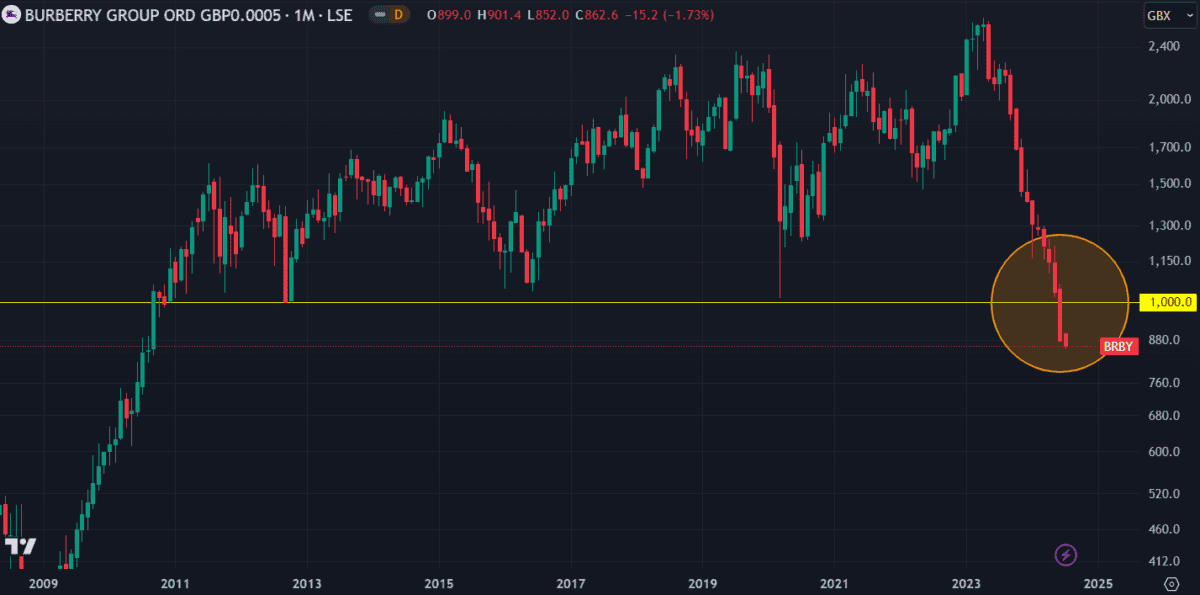The FTSE 100 has had a good year and the UK stock market is doing great. Many stocks have hit new highs in recent months and some long-struggling ones are making a comeback.
But not all of them. Some companies just aren’t performing well and their future looks bleak. Two I’ll avoid this month are Burberry (LSE: BRBY) and Diversified Energy Company (LSE: DEC).
Burberry
I’ve been waiting for Burberry to recover and I genuinely expected it would happen last month. For a brief period, it looked like the key 1,000p level would hold. It did in 2016 and again in 2020 after Covid. But on 26 June it made a move down and is now trading at 850p, near a 14-year low. The drop indicates there are almost no buyers left at that key level.
The following day (27 June) major broker UBS put in a Sell rating on the stock and several fund managers started shorting it. I wish I could say a recovery is imminent but the charts reveal little support below 1,000p.
Now down 60% since last July, the UK’s most recognisable luxury fashion brand has had a tough year. But rather than bad management or changing consumer habits, I think it’s just suffering from a retracted economy.
After all, it’s almost 200 years old so I don’t think it’s going away any time soon. In the 15-odd years after the 2008 financial crisis, the shares grew 1,530%. Once the economy recovers, it’s possible it could repeat that performance — or more! But I fear it may be a while before that happens. In the meantime, shareholders can take some comfort in the 7% dividend yield.
Diversified Energy Company
Fund managers Qube Research and Bridgewater Associates opened short positions on this stock last month. Why? Well, the gas and oil producer recently slashed its dividend in half, meaning the attractive 17% yield will fall to 8%.
Typically, such drastic action is only taken when money is tight. With a hefty debt load and underwhelming FY 2023 results, the company’s board must be feeling the pressure. It’s already down 40% in the past year. And with the high yield being one of the stock’s key value propositions, further share price losses are likely.
Things aren’t all bad though. Equity increased throughout 2023, slightly reducing its debt-to-equity (D/E) ratio. And with earnings per share (EPS) at £16, the remaining dividend is well covered — albeit reduced. The firm was recently listed on the New York Stock Exchange (NYSE) and joined the Russell 2000 this month. With the majority of its operations focused in the US Appalachian region, a shift in trading focus could help it recover.
It also made a series of acquisitions lately to help expand operations. Last month CEO Rusty Hutson said they will help it “enhance our scale, deliver margin expansion, and expand free cash flow”. Should the move pay off, its prospects may improve.
But while that sounds promising, it’s not enough evidence to give me confidence. The debt load remains high and earnings are forecast to decline at 70% per year. With that in mind, I’m avoiding the shares for now.
This post was originally published on Motley Fool







